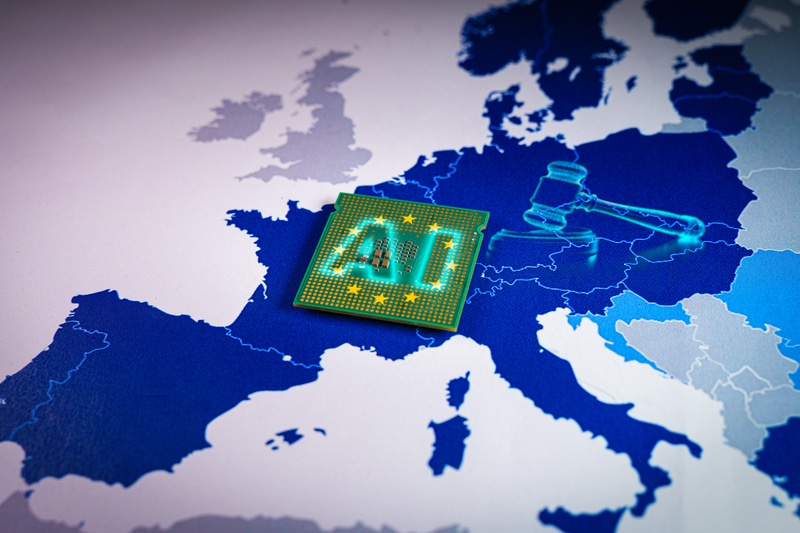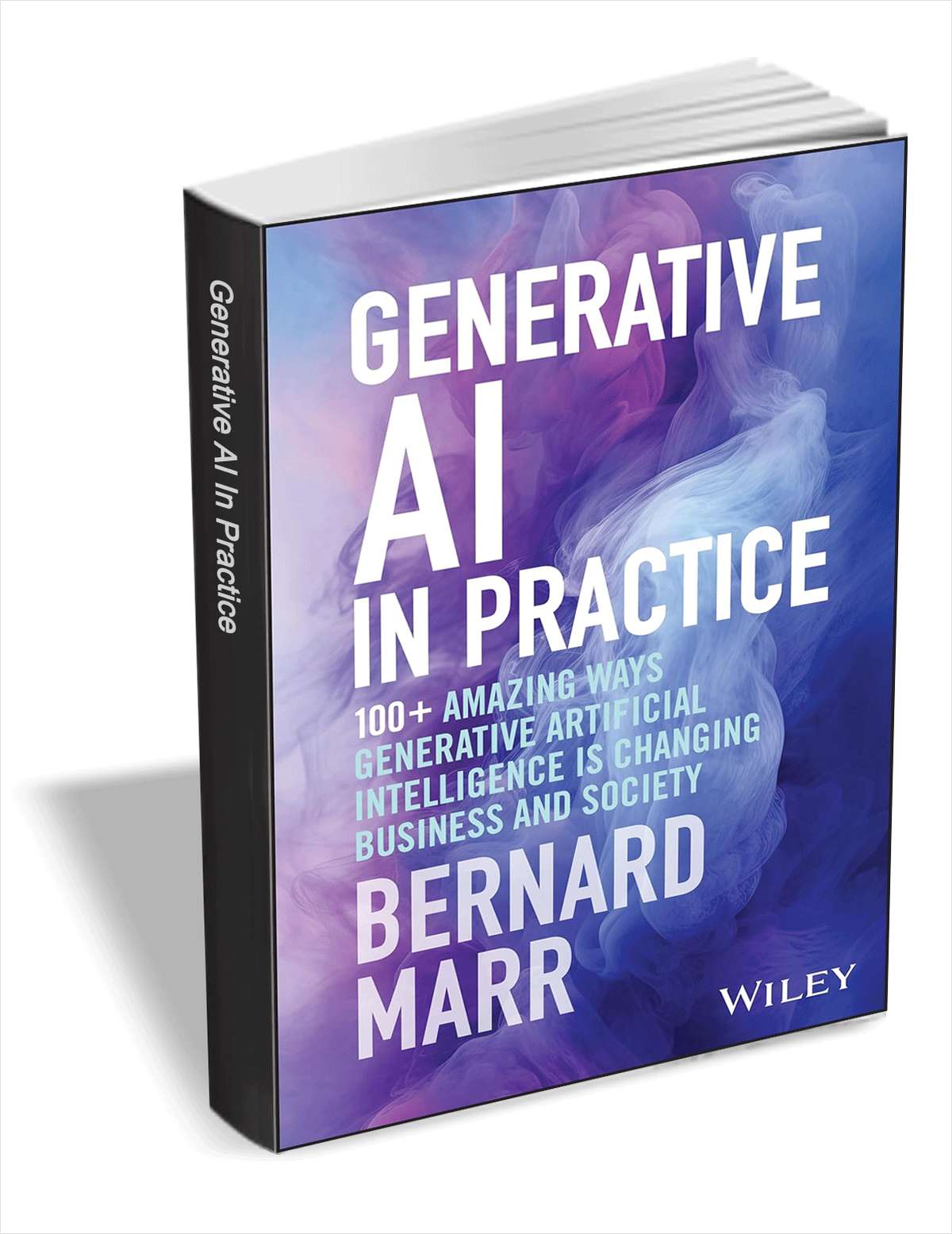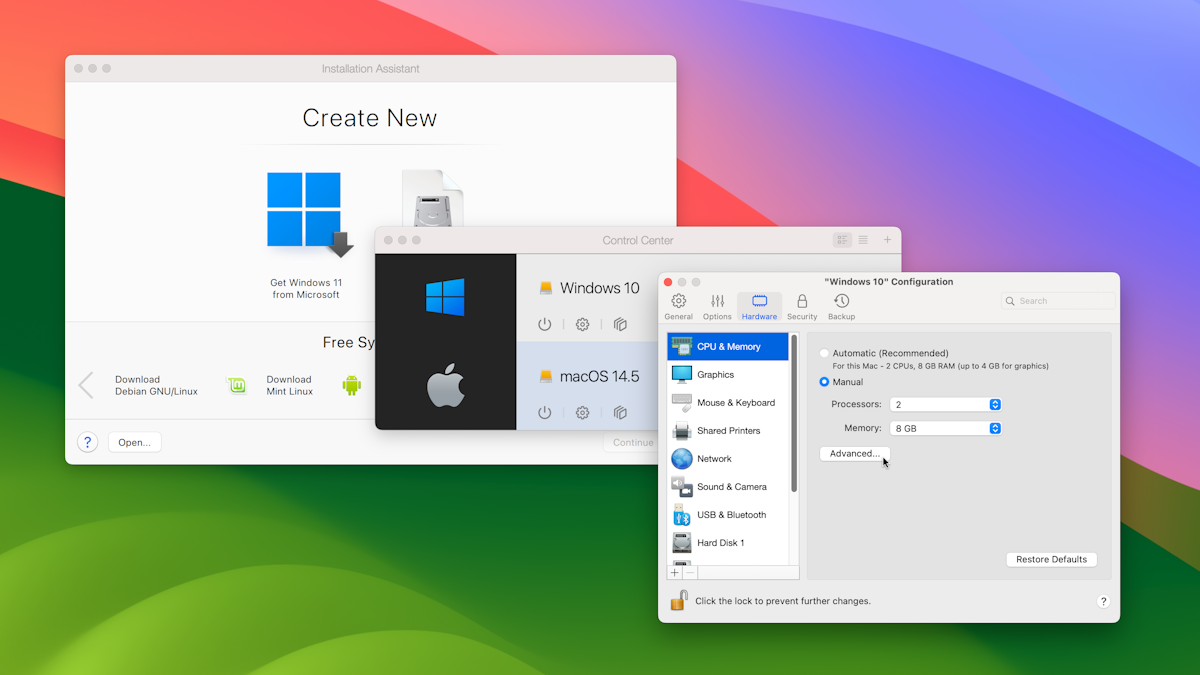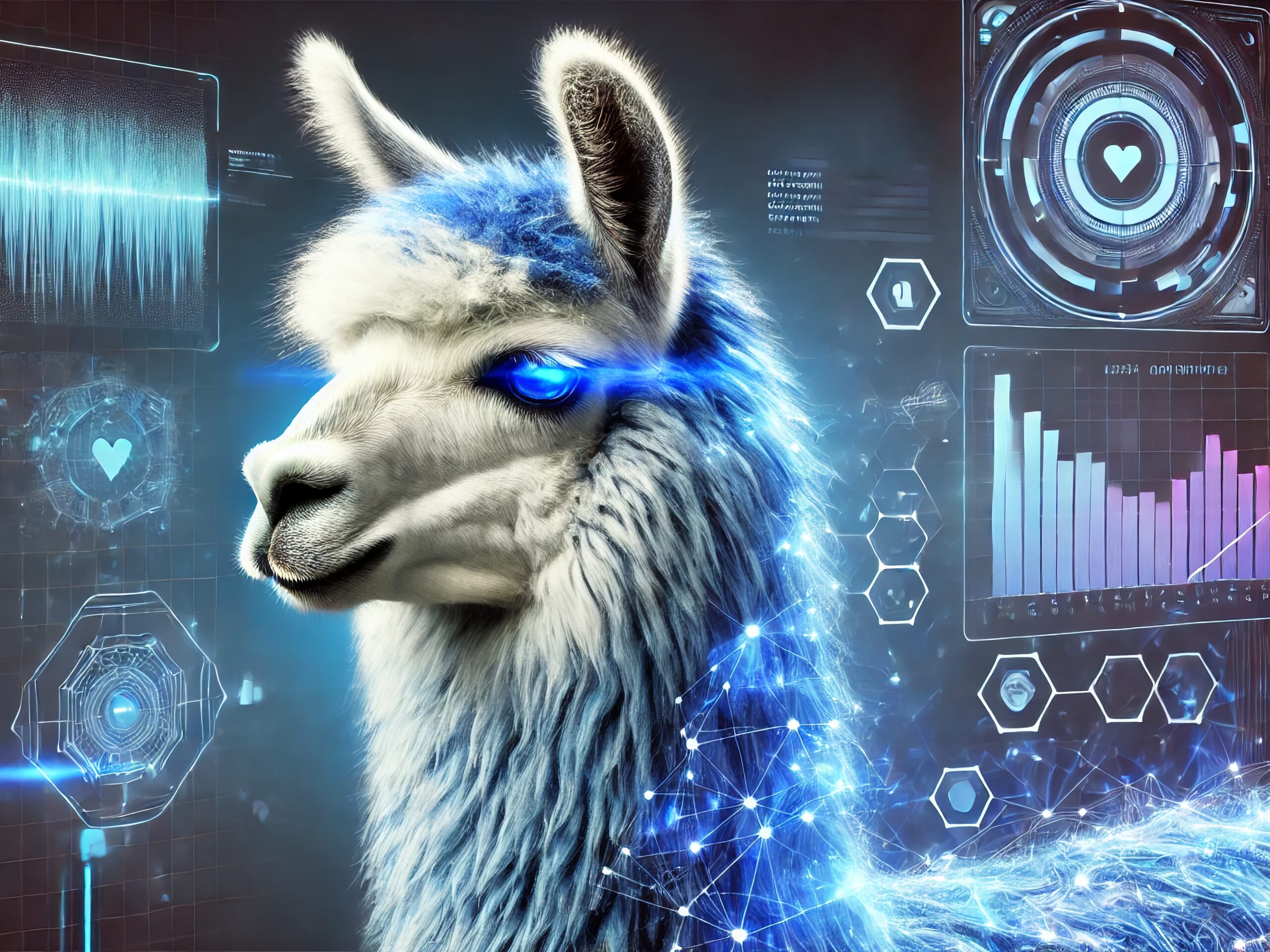
Addressing the demographic divide in AI comfort levels
Today, 37 percent of respondents said their companies were fully prepared to implement AI, but looking out on the horizon, a large majority (86 percent) of respondents said that their AI initiatives would be ready by 2027.
In a recent Riverbed survey of 1,200 business leaders across the globe, 6 in 10 organizations (59 percent) feel positive about their AI initiatives, while only 4 percent are worried. But all is not rosy. Senior business leaders believe there is a generational gap in the comfort level of using AI. When asked who they thought was MOST comfortable using AI, they said Gen Z (52 percent), followed by Millennials (39 percent), Gen X (8 percent) and Baby Boomers (1 percent).

Why businesses can't go it alone over the EU AI Act
When the European Commission proposed the first EU regulatory framework for AI in April 2021, few would have imagined the speed at which such systems would evolve over the next three years. Indeed, according to the 2024 Stanford AI Index, in the past 12 months alone, chatbots have gone from scoring around 30-40 percent on the Graduate-Level Google-Proof Q&A Benchmark (GPQA) test, to 60 percent. That means chatbots have gone from scoring only marginally better than would be expected by randomly guessing answers, to being nearly as good as the average PhD scholar.
The benefits of such technology are almost limitless, but so are the ethical, practical, and security concerns. The landmark EU AI Act (EUAIA) legislation was adopted in March this year in an effort to overcome these concerns, by ensuring that any systems used in the European Union are safe, transparent, and non-discriminatory. It provides a framework for establishing:

Meta is training its AI using an entire nation’s data… with no opt-out
The question of how to train and improve AI tools is one that triggers fierce debate, and this is something that has come into sharp focus as It becomes clear just how Meta is teaching its own artificial intelligence.
The social media giant is -- perhaps unsurprisingly to many -- using data scrapped from Facebook and Instagram posts, but only in Australia. Why Australia? Unlike Europe where General Data Protection Regulation (GDPR) necessitated Meta to give users a way to opt out of having their data used in this way, Australia has not been afforded this same opportunity. What does this mean?

How will AI change the future of software development teams?
AI is revolutionizing the landscape of software development, but it isn’t about replacing human developers. Instead, we are entering an era of “AI-augmented development,” where AI tools are becoming invaluable allies, enhancing human abilities across the software lifecycle. AI will help close the gap between the high demand for custom software and the limited engineering capacity worldwide.
In this new paradigm, AI is stepping in to assist with repetitive and time-consuming tasks, allowing developers to focus on more complex problems. The evolution of software teams will include a new breed of AI-native developers specializing in integrating AI into applications and leveraging AI tools. With AI, the potential productivity boost for developers is extraordinary, allowing them to work faster and smarter. However, while AI can amplify a developer's capabilities, it cannot replace the human creativity, problem-solving, and decision-making that are essential to successful software development. The future belongs to teams that can skillfully blend AI with human expertise.

Save $23! Get 'Generative AI in Practice: 100+ Amazing Ways Generative Artificial Intelligence is Changing Business and Society' for FREE
Generative AI is rewriting the rulebook with its seemingly endless capabilities, from crafting intricate industrial designs, writing computer code, and producing mesmerizing synthetic voices to composing enchanting music and innovating genetic breakthroughs.
In Generative AI in Practice, renowned futurist Bernard Marr offers readers a deep dive into the captivating universe of GenAI. This comprehensive guide introduces you to the basics of this groundbreaking technology and outlines the profound impact that GenAI will have on business and society. Professionals, technophiles, and anyone with an interest in the future will need to understand how GenAI is set to redefine jobs, revolutionize business, and question the foundations everything we do.

The magic of RAG is in the retrieval
Any leading large language model will do. To succeed with retrieval-augmented generation, focus on optimizing the retrieval model and ensuring high-quality data.
The decades-long pursuit to capture, organize and apply the collective knowledge within an enterprise has failed time and again because available software tools were incapable of understanding the noisy unstructured data that comprises the vast majority of the enterprise knowledge base. Until now. Large language models (LLMs) that power generative AI tools excel at processing and understanding unstructured data, making them ideal for powering enterprise knowledge management systems.

Parallels Desktop 20 offers free AI-ready virtual machines for seamless experimentation and deployment of AI tools
Alludo has announced the release of Parallels Desktop 20.0 for Mac. Available in Standard, Pro, Business and -- new to version 20 -- Enterprise editions, the virtualization software makes it easy for Mac users to run Windows, macOS and Linux virtual machines on their desktop.
Version 20’s headline new feature is the Parallels AI Package add-on for Business, Enterprise and -- until the end of the year -- Pro users running Macs with Silicon hardware. This provides access to AI-ready virtual machines to aid in development.

Is your network future-proofed for the age of AI?
The internet was a massive, revolutionary invention. A once-in-a-lifetime breakthrough. And yet, it was not an overnight sensation in terms of consumer adoption. This may surprise some people today. From the early web browsers in 1992 to the explosion of dot-coms in 1998, it took roughly six years for the general public to truly embrace the world wide web. Fast forward to today, and the landscape has dramatically shifted.
Consider the recent phenomenon of ChatGPT, the large language model chatbot launched by OpenAI in late 2022. Within a year, consumer adoption of this AI technology reached a fever pitch. For a while, it was all anyone in tech and business circles could talk about. In fact, they still are. This highlights a critical difference in our current technological era, which is that innovation is happening and being adopted at an unprecedented pace.

The importance of preparing data for AI integration
Despite the importance and timely arrival of the EU AI Act, there remain some major compliance concerns and the impact it will have on AI adoption and governance strategies. In fact, a recent survey found that having the proper AI governance in place is a top priority for 41 percent of business decision-makers. However, around one-quarter of UK firms have yet to make preparations for AI, and this is partly due to lingering confusion over their obligations.
Yet, the requirements set out by the Act are specific, particularly for “businesses or public authorities that develop or use AI applications that constitute a high risk for the safety or fundamental rights of citizens.” This high-risk category can include anything from law enforcement and employment systems to those used by life sciences and critical infrastructure organizations.

Cheapfakes and deepfakes -- How to spot them
In recent weeks, the term ‘cheapfake’ has shot to the forefront of our national consciousness. Cheapfakes -- and their equally disruptive counterpart, deepfakes -- are becoming much more prevalent today, with the volume of this misleading content estimated to be doubling online every six months. That’s why the world’s leading search engines, social media networks and content publishers are taking notice. In recent weeks, Google announced a far-reaching plan to reduce the discoverability of deepfakes in their search rankings.
Luckily, you don’t need the resources of Google to spot altered media. Here, we’ll examine the primary differences between cheapfakes and deepfakes as well as the AI-based tools that can be used to decisively detect them.

Meta’s Llama AI engine sees rapid growth in open source adoption
Meta’s Llama AI engine has seen substantial growth in the open source AI landscape, emerging as a leading force in the industry. With nearly 350 million downloads to date, Llama models have experienced a significant increase in adoption over the past year. In July alone, the models were downloaded over 20 million times, positioning Llama as a prominent open source model family.
Since the introduction of Llama 3.1, which expanded context length to 128K and added support for multiple languages, usage by token volume across major cloud service providers has more than doubled in three months. This growth reflects an increasing preference for Llama within the developer community, making it a notable competitor in the AI field.

The dawn of the AI-enabled intern
On paper, artificial intelligence makes for the perfect intern -- it’s keen to please, happy to do anything thrown its way, and gets on with tasks so efficiently. It’s also prone to making mistakes. And like a human intern, AI tools need training and monitoring rather than being catapulted straight into senior positions -- it is extremely well suited to the repetitive and predictable tasks that we often ask junior staff to handle.
Unlike people, AI works 24/7, never stresses out -- it can complete a vast number of tasks in a short period of time. This makes it ideal for the mundane jobs that people tend to find boring and time-consuming. Take a function such as VAT ledger data analysis, which can contain millions of rows of data -- for a human to correctly analyze every row would not only take an age but would also be mind-numbingly boring. By contrast, AI can examine it in seconds -- think of it as an ‘infinite intern’.

Remembering the human factor in AI -- Why businesses should focus on workflows, not just applications
An Office for National Statistics (ONS) report shows that one in three UK workers now believe AI could take their job. This concern has been intensified by narratives that overlook AI’s success in collaborating with humans. In reality, the most effective AI applications have been those that serve as assistants to employees, enhancing their role and maximizing their productivity, rather than replacing them.
Businesses undoubtedly understand the potential AI has to boost the productivity of employees, with more than three in every four organizations either using or exploring the use of AI. However, employers are equally unaware of the complexity of their employees’ workflows. A recent WalkMe report shows that enterprise leaders believe their business is using an average of 21 applications each week. The true number is 211, with more than 20 percent of those being AI applications.

Protecting digital customer journeys from AI biases
Today, hundreds of millions of people use tools like ChatGPT to brainstorm ideas, or Midjourney to create new visuals. Artificial intelligence (AI) tools have become part-and-parcel of our daily lives and are propelling the arrival of a new digital era. We now work more efficiently, can better meet professional or creative challenges, and accelerate new innovation.
But AI now has much more intrinsic value than supporting our daily tasks. It is integral to powering our critical services and keeping society running, whether that’s facilitating loan agreements or providing key access to higher education, mobility platforms or medical care. Identity verification, fundamental to online access, was traditionally seen as a gateway to credit checks and opening a bank account, but thanks to AI it now supports services from healthcare to travel and eCommerce.

How to run Microsoft Copilot on older versions of Windows -- including XP, Windows 7, and Vista
While some Windows 11 users might prefer not to have Copilot included in Microsoft's latest operating system, there are also those using older, unsupported versions of Windows who would like to try the tech giant's AI assistant, if only to see what all the fuss is about.
Although Microsoft doesn’t provide Copilot for the likes of Windows XP, Windows 7, Vista, or Windows 8.1, you can still install and run it yourself.
